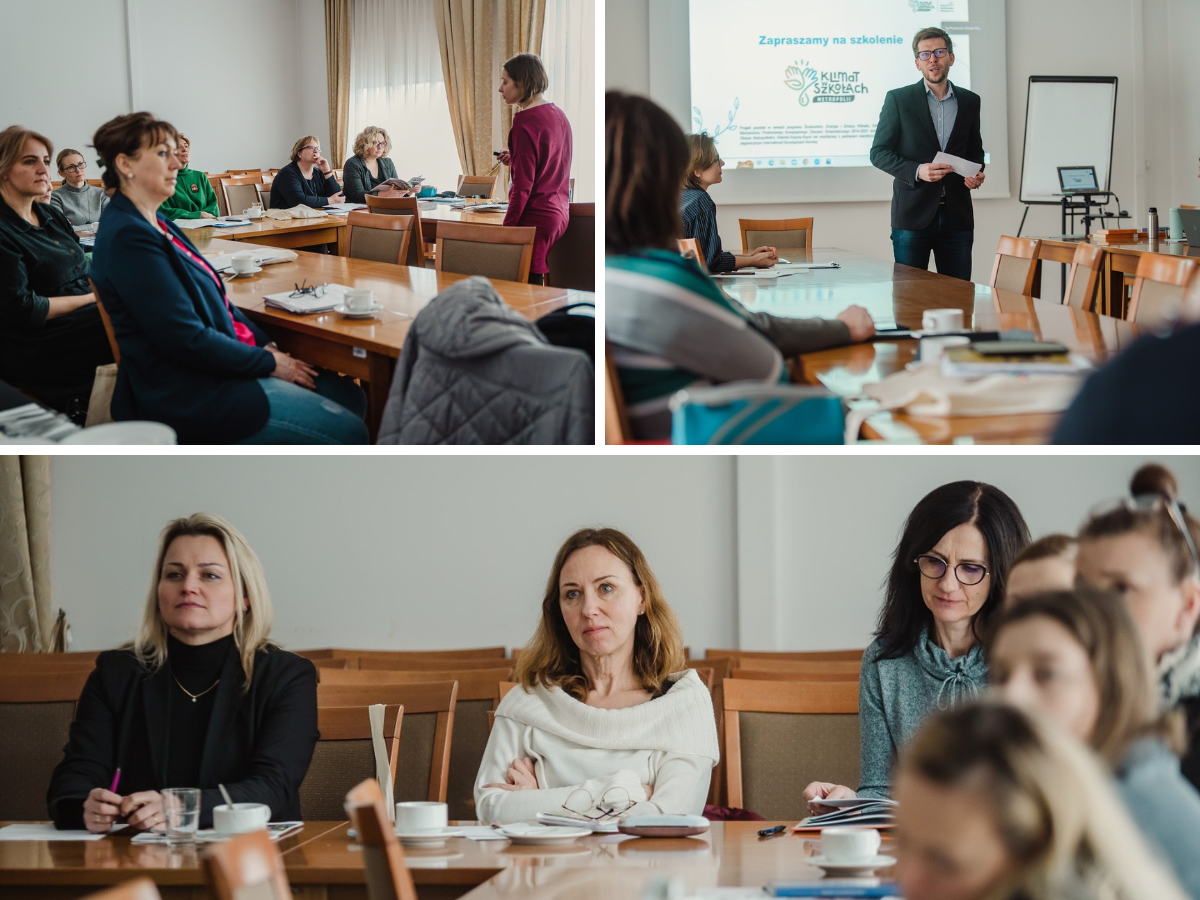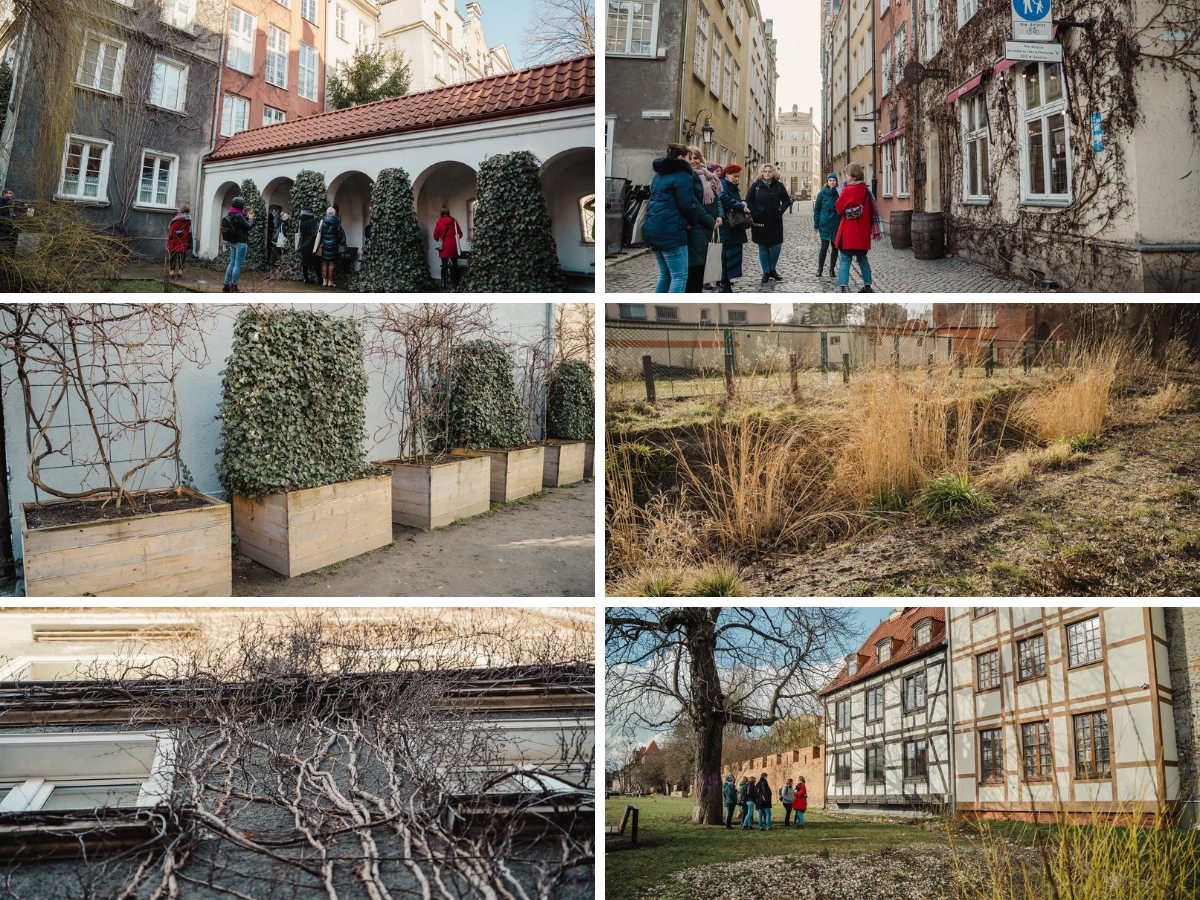
Training for teachers pic.: MAGGS
The educational project “Climate in the Schools of Metropolis” implemented by Metropolitan Area Gdańsk-Gdynia-Sopot – LOCALISED partner – is entering a new stage. Training for nature, biology and geography teachers from 40 schools participating in the project has been completed.
Let’s play green. Environmental education from an early age.
During the training, ecological infrastructure solutions that use the potential of plants, soil and rainwater were discussed. They make it possible to become resistant to the effects of climate change, and ultimately to mitigate and stop them. Nature-based solutions discussed in the project include: rain gardens in the ground and box, retention basins, green walls, compost bins. As part of the project, this infrastructure will be built in 40 metropolitan schools.
Workshop participants also got acquainted with examples of investments and educational projects in the field of water retention and biodiversity protection implemented in Norway. They were presented by the foreign partner International Development Norway.
The project “Climate in the Schools of Metropolis”, which we are implementing with several dozen local governments, focuses on climate science. Thanks to Norwegian funds, we are building green walls, retention basins, rain gardens in schools, and thanks to joint training, teachers will conduct lessons in our schools based on this new infrastructure – says Michał Glaser, CEO of the Board of Metropolitan Area Gdańsk-Gdynia-Sopot.
Timetable for teachers
During the training, ready-made scenarios of lessons were presented, which will be used by teachers. They are intended for grades 4 and 5 of primary school and grades 1 and 2 of secondary school, but due to the flexible and creative formula, they can also be used in other grades as needed.
We familiarize teachers with the subject of small retention: rain gardens in a box, rain gardens in the ground, retention basins, as well as green walls and compost bins. We really want it to be such a practical dimension of knowledge. We really want it to be such a practical dimension of knowledge, so as to inspire, and then so that teachers inspire their students and encourage them to implement – says Maja Skibińska, landscape architect from Pracownia Szelest, co-author of lesson plans.
In order to diversify the lessons, a package of didactic materials has been prepared. The attachments to the scenarios include multimedia presentations, educational boards, worksheets, charts, quizzes, games, inspirations and other teaching aids.
The developed materials will help teachers creatively teach children and youth how to counteract the effects of climate change.
Examples of green-blue infrastructure
In the second part of the training, outdoor visits took place, during which teachers saw examples of green walls or rain gardens in Gdańsk, which are implemented by the substantive partner of the project Gdańskie Wody.

Examples of rain gardens and green walls in Gdańsk pic.:MAGGS
As part of the project, blue and green infrastructure will be built on school grounds. The investments, in addition to the design, earthwork and construction works, will include the construction of installations enabling the proper direction of rainwater, but also the planting of plants appropriately selected for a given type of infrastructure. Each school will additionally receive gardening tools and plants to carry out plantings as part of educational activities.
The project “Climate in the schools of the Metropolis” is implemented as part of the Environment, Energy and Climate Change programme. The funding comes from the European Economic Area Financial Mechanism 2014-2021 and the state budget.
The project “Climate in the schools of the Metropolis” will end at the beginning of 2024. MAGGS implements it in cooperation with the content partner Gdańskie Wody and the foreign partner International Development Norway.

- Project website: www.klimatwszkolach.pl
- Social Media:
- Training report

Recent Comments